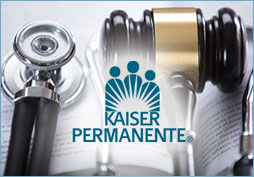Medical elder abuse information
One in 10 older adults experiences some form of abuse or neglect by a caregiver every year, and, unfortunately, this figure is expected to increase. Due to the fact that they’re vulnerable and, in many cases, unable to help themselves, many elderly individuals aren’t given the care that they need to treat any of the medical conditions or illnesses from which they’re suffering.
The most common type of medical elder abuse is the result of negligence on the part of the caregiver. Negligence is characterized by the intentional or unintentional refusal or failure of the caregiver to meet the needs required for the well-being of the elderly individual in his or her care. This can include failure to provide adequate and appropriate medical care, adequate food, clothing, and shelter as well as adequate hygiene and opportunities for appropriate social communication, stimulation, and interaction.
Evidence of such abuse may include dehydration, rapid weight loss, the presence of painful bed sores, cuts, bruises, and other unexplained injuries. Perhaps, the caregiver is withholding necessary medication, over-medicating, or giving the individual in his or her care medication that has not been prescribed by a doctor. In many cases, the caregiver decides to spend the minimal amount he or she can on medical care in order to get a larger share of inheritance after the person in care dies.
Whatever the circumstances are, elder abuse is not only unacceptable, it’s illegal.
Testimonial
Do you need to take action?
If you suspect that one of your parents or grandparents is a victim of medical elder abuse, there are signs that you should be aware of such as:
- Missing medications
- Dehydration
- Fecal impaction
- Malnutrition and/or medically unexplained weight loss
- Poor control of medical issues despite a reasonable medical plan having been put into place and access to medications
- Unusual delay in seeking medical attention for injuries
- Dirty clothing, urine burns, and other signs of inattention to hygiene
Medical abuse of senior citizens can be carried out by professional care providers in facilities or by unethical doctors, nurses, or other hospital personnel. It can be carried out in the home by a spouse, adult child, other relatives, or friends.
Kaiser Arbitrations

Speaking to an attorney
If you suspect that a loved one is a victim of medical elder abuse, you’ll want to contact adult protective services as well as speak to an attorney that has experience handling cases of elder abuse and medical malpractice.
Helping You Cope

Medical malpractice occurs when a doctor, hospital, nursing home facility, or other healthcare provider causes injury to another due to negligence or an intentional act. Examples of medical malpractice include under or over-prescribing medications and withholding appropriate treatment resulting in pain and suffering for the individual.
Scott S. Harris represents medical malpractice claims throughout Southern California. Contact our office to schedule your free consultation.
Meet Scott

